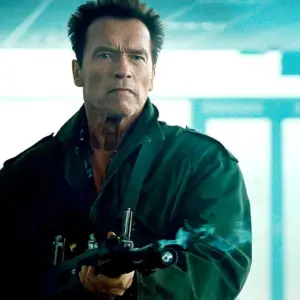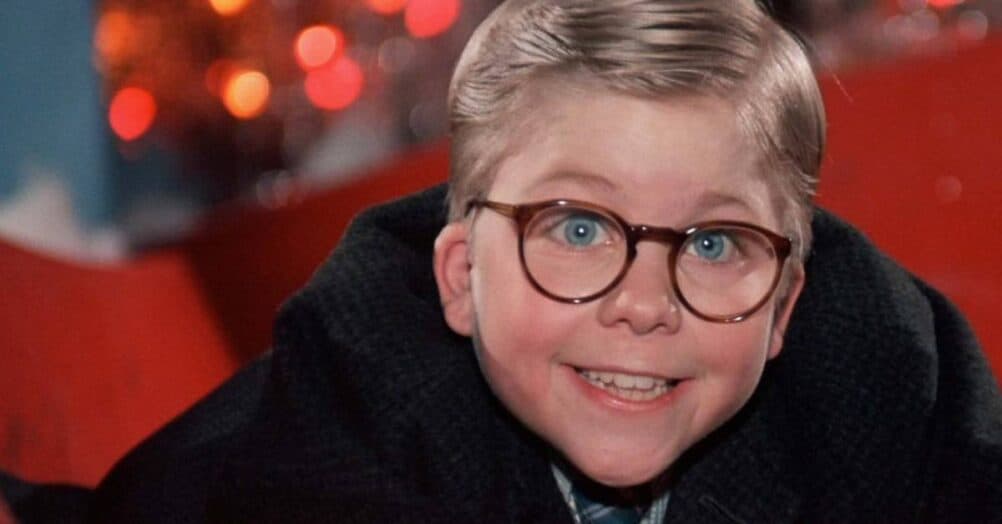Last Updated on August 2, 2021

While attending the premiere of THE EXPENDABLES 3 in London (my review here), I was given the opportunity to talk with Antonio Banderas and Wesley Snipes about their parts in the new franchise. Along with a few other journalists, we spent the time discussing what they brought to the film, how it challenged them, how they prepared for their roles, and much more. It was a lively and fun discussion with both Snipes and Banderas being good sports and offering up some interesting chatter as well as some fun banter (at one point Banderas leapt from his feet and pounded on the wall). As someone who has grown up watching both of the actors' films throughout the years it was a pleasure to speak with them.

Question: Both of you guys have been involved in so many movies, what did you think the process for making this movie was going to be before you got in there and what was it actually like compared to what you thought?
Antonio Banderas: At the beginning, you know, to tell you the truth, when you go to a movie with so many stars, you don't know what you're going to find, exactly. You don't know if it's going to be an ego trip, ego on the set [laughs], who is taking this position, where the camera is, I want to be in front of this guy – that's true. In fact, I think everybody was joking about that possibility on the set. It's worse, actually, when you have people around you that are very hungry to obtain something that they never had. Success. And these guys are so successful, not just with movies. With franchises and everything they have done. They've overcome, actually these tons of stars, to become legends, and that's what they are. So they are not hungry. It was a sense of fun. That's the truth. That's what I experienced. [To Snipes] I don't know in your case.
Wesley Snipes: I was just hoping that it wasn't just about jumping and gunning and shooting and blasting stuff up. That we would be given the opportunity to create a character, not just come and play ourselves – a version of ourselves and get to play off one another. That repartee, like, you know, theater actors do. I was looking forward to that. And sure enough, that's the way it turned out. We had a latitude to play and experiment and call and response, as we say, and build the character and give some nuances and bring some subtleties that actors like to do to characters.
Antonio Banderas: He's very serious on the set. No, this is not a joke.
Wesley Snipes: I'm not – I don't smile at all.
Antonio Banderas: No, he doesn't. This thing [indicates Snipes' deadpan face] not at all…
Wesley Snipes: Every time he'd come out at my trailer [laughter], I'd [deadpan face]…
Antonio Banderas: He though it was like – when we finished the shooting at the end of the day, but he's not like that. I went to knock in there, but there was nobody there. I [said], “knock knock, Wesley, are you there?”
Wesley Snipes: [deadpan face] Go away.
Antonio Banderas: Wesley?
Wesley Snipes: Go away.
Antonio Banderas: He was completely in his character.
Question: Are you being totally serious?
Antonio Banderas: I'm being totally serious!
Wesley Snipes: Totally Banderas! He's totally serious! Totally Banderas!
Antonio Banderas: And I was totally in mine. He talks and talks and talks and talks, and I wanted to relate to somebody. And the young kids, they weren't going to relate. But he didn't open the door, and I was was like, “boom, boom boom [deadpan],” which added to my character. I was very annoying.

Question: [to Snipes] Did it make you want to mess with him more?
Wesley Snipes: Ah, he can't help it. He's really attracted to me. [laughter]
Question: How fun is it to be that annoying character in the film?
Antonio Banderas: It was. It was, actually. And when I saw them rolling [their] eyes, I said, this is working. This is working. These guys are tired of me! I love it. No, I saw that immediately, when I read the script, I had to be sincere. There was a choice. I mean, if this guys stops, he goes immediately into a depression. This guy has to, for his own sake, continue this hyperactivity, in order to don't allow himself to think. In the moment that he stops for a second, and starts thinking, all the shit starts coming up. I think someone, actually Sly (Stallone), though I must respect Patrick (Hughes), he was very, very nice with me and he just allowed me to do whatever I had in my mind, but in regards to Sly, the day we were in the warehouse … I explained to him about the guys, these guys, mates that I have in my mind and there was the last one and I play the two first in comedy. And he accepted it. But the last one, he came to me – he was fixing the plane at the moment, and he came down and said, “Antonio, I understand what you're doing, but think about, it's almost like, in the middle of the story that you're telling with me, you're getting in touch with your real truth. And that is not funny for you. Do something, in this particular story that makes me turn my head and look at you in a different way. You're not annoying anymore. Suddenly there is something that is true there that I want to see you embracing. And that is good direction. That is very good direction, which he is going to need as to one scene that he never touches, because I thought it was well-written, that we have in the movie, in which the guy was suddenly calmer, he's just walking along and you can see that his wheels are turning and he comes to me and he's just talking at the guy until he makes him vomit what he's got inside. That gives a beautiful dimension to the character. If you don't have that, he would be just an annoying guy.
Question: That was the most surprising scene in the entire film. That was the moment of an emotional raw nerve that was just exposed…
Antonio Banderas: And it plays, because you can contrast that with whatever you did before. He's one of the guys, yes, he's a crazy motherfucker, and he's just going around – it's like, shut the fuck up. And at that point, you understand that that is made for a reason.

Wesley Snipes: I taught you this. [laughs] The thing is, is that, there are only certain people who can pull things like this off. He's probably the only person on the planet that could really pull that off. You know? When he came in – being a fan of his and never having had a chance to work with him, I was really curious to see, what's the guy like versus the characters I've seen on screen. And his ability to tap into and flow with his stream of consciousness, and still be in context and [to have it] still make sense and be funny and serious – I said, this is a bad dude, here! Mr. Bandaras, he's a bad dude. Very very talented individual. And I grew to appreciate him more as a result of that. And I recognize that, okay, I've got to find my role now! [laughs] There are only certain people who can pull that off and make choices that work.
Antonio Banderas: Thank you, man.
Wesley Snipes: Yeah, man.
Question: One thing we had all discussed after seeing the film is that you really looked comfortable in the film. You really just settled in. This is not like, we'll just do this Expendables movie for the hell of it. Everyone seemed really comfortable and really on top of their game. Did you guys talk on set, like, everything is really gelling well? It comes across on screen that you guys feel very comfortable in these roles and in this setting.
Wesley Snipes: From my perspective, I didn't have much to lose! I came in feeling like, man, I could have a great time! You know, and at the same time, work with cats that I always wanted to work with and play off of. So it reminded me of being in theater school again – Let's rock and roll. So, no pressure.
Antonio Banderas: I had an idea and I wanted just to make it work. And I am never, ever secure on the set that what I am doing is going to translate to the screen.
Question: Even still?
Antonio Banderas: Yeah. It never changes. Sometimes I am surprised, you know? Sometimes … Laura Linney, I remember working with her here in London. I was doing that and I was feeling like I was completely out of touch. But she said something to me that was very interesting. She said, “If you feel very uncomfortable playing this character, it is because you are creating. If you feel very, very comfortable and very secure, it is because you are repeating something that you already did and that more or less is going to work, but you are doing shit. Just tricking yourself into doing the same thing. If you feel uncomfortable, you yourself unconsciously took the fall on which you step on, and you are in oblivion. And oblivion is real creation. It's true. Pedro Almodovar is perfect to do that. He kicks your butt in a way that – oh mother of God. You say, oh my God, I'm going to be executed after the movie and then he'll never talk to you again.
Question: Was there ever a role that you did where you felt like it wasn't working at all? And that it was the editing or the direction that made it work?
Antonio Banderas: Yes, so many times, in my case.
Wesley Snipes: Yeah, many times.
Question: Wesley, in Expendables 3, the scene where you basically – fly. I don't know how to describe the moments of getting up to the crane there. Was that all you?
Wesley Snipes: If I tell you, I have to kill you. Not all of it. I'm still agile.

Question: Your part in this movie, it's so good to see you on screen again…in this movie, taking over the train [and] I loved your shaving scene. Every moment of this. How good is to see yourself on screen again?
Wesley Snipes: I'm kind of like him in that, since you really don't know what's going to work and you hope that it's working – and even, you know, I saw a cut of the film and I still criticize and think, I could have done it this way or that didn't come off exactly as I had in mind. But you go for it the best way you can, and hopefully it comes off well. I wanted to have a character that was dynamic, that could be dynamic and dangerous and a little kooky, a little crazy. And if there was some humor that emerged out of it, I was going to be happy with it. So far, so good.
Question: I just want much more. Keep giving us more.
Wesley Snipes: You know, it's funny how that happens. Because, you know, you saw the plane scene. There are cuts in it that you never – that they didn't include in the movie. But I remember sitting there going, damn, that's a good idea! I wish I'd thought of that. That's a really great approach to this! Because it separates you from all of the super macho howls and…
Antonio Banderas: That's in the movie anyway.
Wesley Snipes: That was a good move!
Antonio Banderas: I didn't see the movie, so I don't know.
Question: You haven't seen it yet?
Antonio Banderas: No, but…
Question: You're very good!
Antonio Banderas: Thanks! I remember doing that in that plane practically anything that you can imagine. I jumped, I started jogging, up and down, and these guys..
Wesley Snipes: He does yoga, he does ballet, he cracked me up, man. And it was the first day! You literally got off the plane, and…
Antonio Banderas: I remember one thing that I invented, that was so weird. It was so weird! It was unbelievable. “You know, we don't have wings. We don't have fins, so we're not supposed to be fish. Do we have wings? Do we have wings? We don't! We don't have wings, but we are flying! Because of our brain! This structure, this plane is awesome!” [laughter] I have no idea what I was talking about. Wings!
Wesley Snipes: But it makes a lot of sense!

Question: When you're doing that, were you breaking on set?
Wesley Snipes: Aw man, I'm cracking up inside, you know? I'm crying!
Question: But you held it together the whole time?
Wesley Snipes: Yeah. Until they said cut! [laughs]
Antonio Banderas: Randy (Couture) was like, "What the fuck?”
Question: I was trying to describe your character to my father back home and I said, “Antonio plays the best lost puppy I've ever seen in a film.” You're a homeless puppy, and you just have this, like, “take me [look]. Take me home, please.” It's beautiful, because it's not something you typically see in these types of films. And yet, it's precious. It works.
Antonio Banderas: Because in a way, I think we all, at some point in our lives, we need to belong. And he doesn't belong to anything or anybody. And he wants to belong to this group so fucking bad. So bad. At the same time, I didn't see it, I don't know when he says to me, okay, you are part of the group.
Wesley Snipes: Good move, if you ask me. It's aces up his sleeve. Like that guy is doing that, he's doing that, and I'm not doing nothing like that! [laughter] This is where I'm going. No one else can do this. I'm good!
Question: There was a physicality to the character that was almost hunched – where did that come from?
Antonio Banderas: I don't know. [to Snipes] He knows these things. If you become very self-conscious about what you are doing, you kill. You kill the character. Then it doesn't work. You have to come from a sincere place. And my sincere place is that this guy is that this guy is completely alone and desperate. Desperate. That's the only thing that I could say. And then from that, everything comes. And you don't think too much. I don't go to the hotel and I start thinking what am I going to say tomorrow and start writing things down. No. It has to come from here. Especially if you are going to improvise and stuff, in the moment. In his face or Randy's face…
Wesley Snipes: Not everybody can do that. There are only certain people who can pull stuff like that off.
Question: Well, it made me want you to do Cantinflas
Antonio Banderas: It's been done!
Question: But I want you to do Cantinflas!
Antonio Banderas: It has been done by a Spanish guy that is very good! Oscar Jaenada. He's a very good actor, and I understand that he did an amazing job. It was been done…it's extraordinary.

Question: I'm very curious, for the two of you, I'm a big fan of both of your work, and I'm curious how your process had changed as an actor from when you first started to now. Has it gone through a dramatic shift? Do you prepare for every role in the same way? Can you talk about how you prepare for a role as an actor?
Antonio Banderas: I don't prepare for every role in the same way.
Wesley Snipes: No, no. Definitely not.
Question: Can you talk about how you started and maybe what you do now?
Antonio Banderas: I discovered very soon, especially for movies, because I started in theater, I discovered that every director has his own universe. You have to be free enough to try to understand what he wants from you. Especially when that director has a tremendous personality. And I'm talking about people like Pedro Almodovar and Robert Rodriguez and Quentin Tarantino and Woody Allen. These are samples of directors who have tremendous personalities. And you have to adapt. If you don't adapt to them, you are off the thing. And so what are you going to do? I'm not going to work the same way that I work with Pedro Almodovar that I work with Patrick or Sly. I can't. So I have to change the chip, and sometimes in a very short period of time, try to – the idea would be to ask, and sometimes I do. Why did you call me? Why? And he may say, a scene. What scene? A scene in this particular movie. You gave something there. I'd say, oh really. So you can start from there. But it is very difficult to follow your own method all the time because you may crash against some directors who want from you something different. Trying to understand the material, who you're working with, and how can you fit in there. That is my approach now. Because at the beginning, I crash, exactly on that. I had my principal. I had my studies. I know how to approach my character. And I was fine all the time with actors in order to obtain what I want. And that is no good. You separate from the material when you do that. The director and you have to be together.
Wesley Snipes: My approach is, I watch a lot of different films. A lot of different performances and I find a lot of little things from the films or things that actors do or people in real life who have behaviors or idiosyncrasies that I like or find interesting and I try to remember that. And then I'll do a prayer. I'll do a prayer to ask the character or the spirit of the character to come and visit me. And let's work together. Use me as an antenna to communicate what it is that you would like me to say. And bring with the prayer and all those little pieces together and then I let it flow.
Antonio Banderas: That's very interesting.
Wesley Snipes: I mean, technically I actually take images of things and put them up around the wall and in a room. I set a room aside. It might be colors, it might be animals, or energy and words. And I'll just leave it there, so it begins to work on my subconscious when I think about the character. Which gives me some latitude to be really flexible and spontaneous but within the context of the character and the world of the character without having to think about it. Or I'll look at something or read something and let it work on my subconscious mind. And then in the morning, when it comes time to perform, it's there for me.
Antonio Banderas: Did you work with Sandra Seacat?
Wesley Snipes: No.
Antonio Banderas: Because that's her method. She makes actors – and I know because Melanie (Griffith) works with her method for many years. She wrote a letter to her character, at night. Dear whatever the name of the character was, this night I will offer you my dreams to give me yourself, to embody me, lalala. And she put it there on the table and went to sleep. And in the morning, she got ideas and she started writing them down. You need the subconscious to bring the character to you.
Wesley Snipes: The key, and at least I think the key that differentiates the good actors from the mediocre ones that are still trying to come up, is that the good ones know how to listen. It's like being in a jazz band. They know how to listen to what the other musicians are playing. And where to come in and where to sit out. And they're okay with that. That's my approach to being in an ensemble cast and working with any kind of actors in a scene. I'm going to listen to what you're doing and if you're in a particular rhythm, in a particular place, I might want to sync up or I might just want to fall back. Or you might be soft and I might say this is a perfect opportunity to be dynamic. I'm trying to listen to what you say. I actually learn the script better by listening to it than by reading it. [laughs] If you give me a rehearsal, I can remember the script better off the rehearsals than I can by sitting at home and hearing lines.
You can catch THE EXPENDABLES 3 in theaters on August 15, 2014.




















Follow the JOBLO MOVIE NETWORK
Follow us on YOUTUBE
Follow ARROW IN THE HEAD
Follow AITH on YOUTUBE